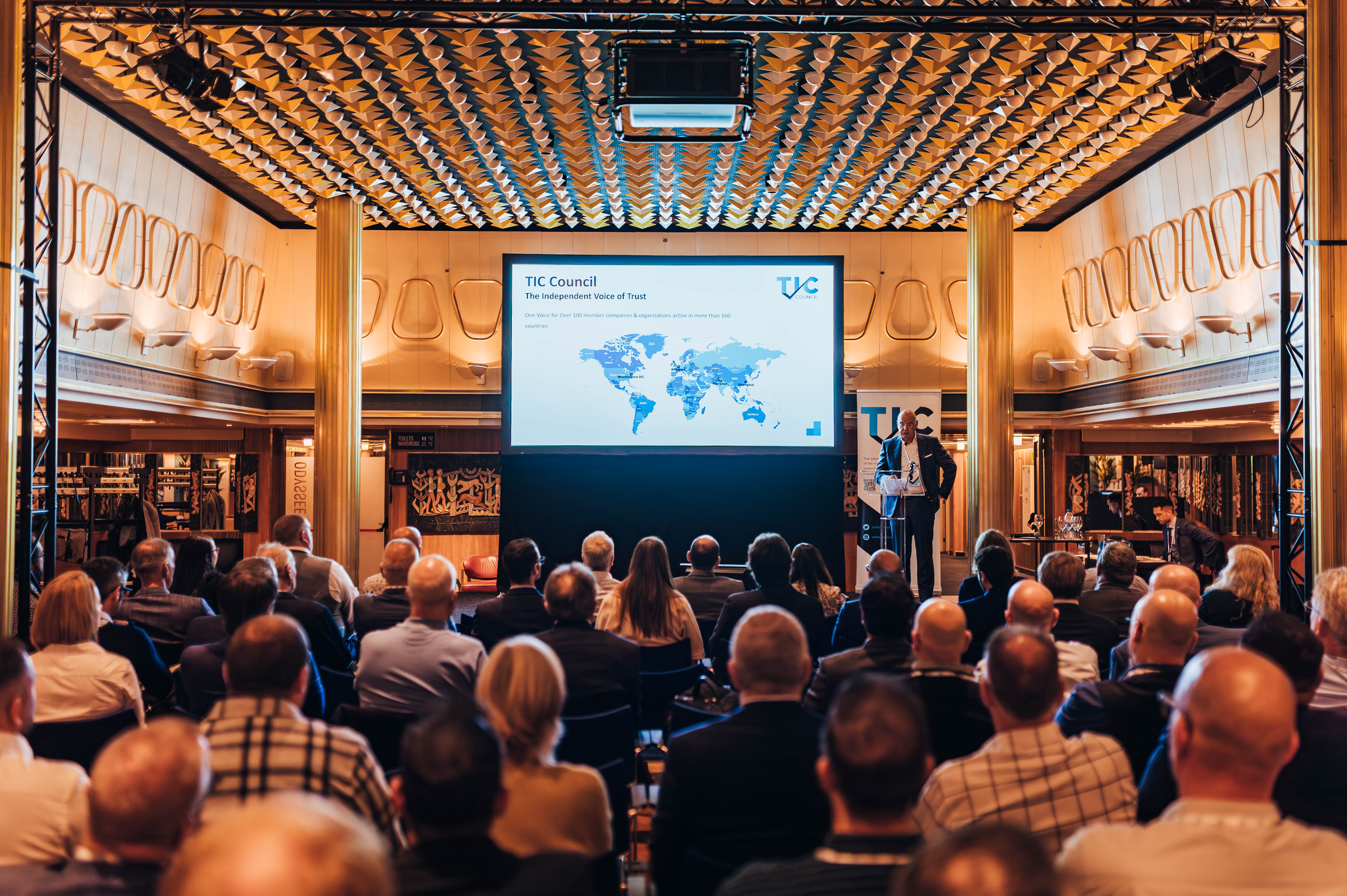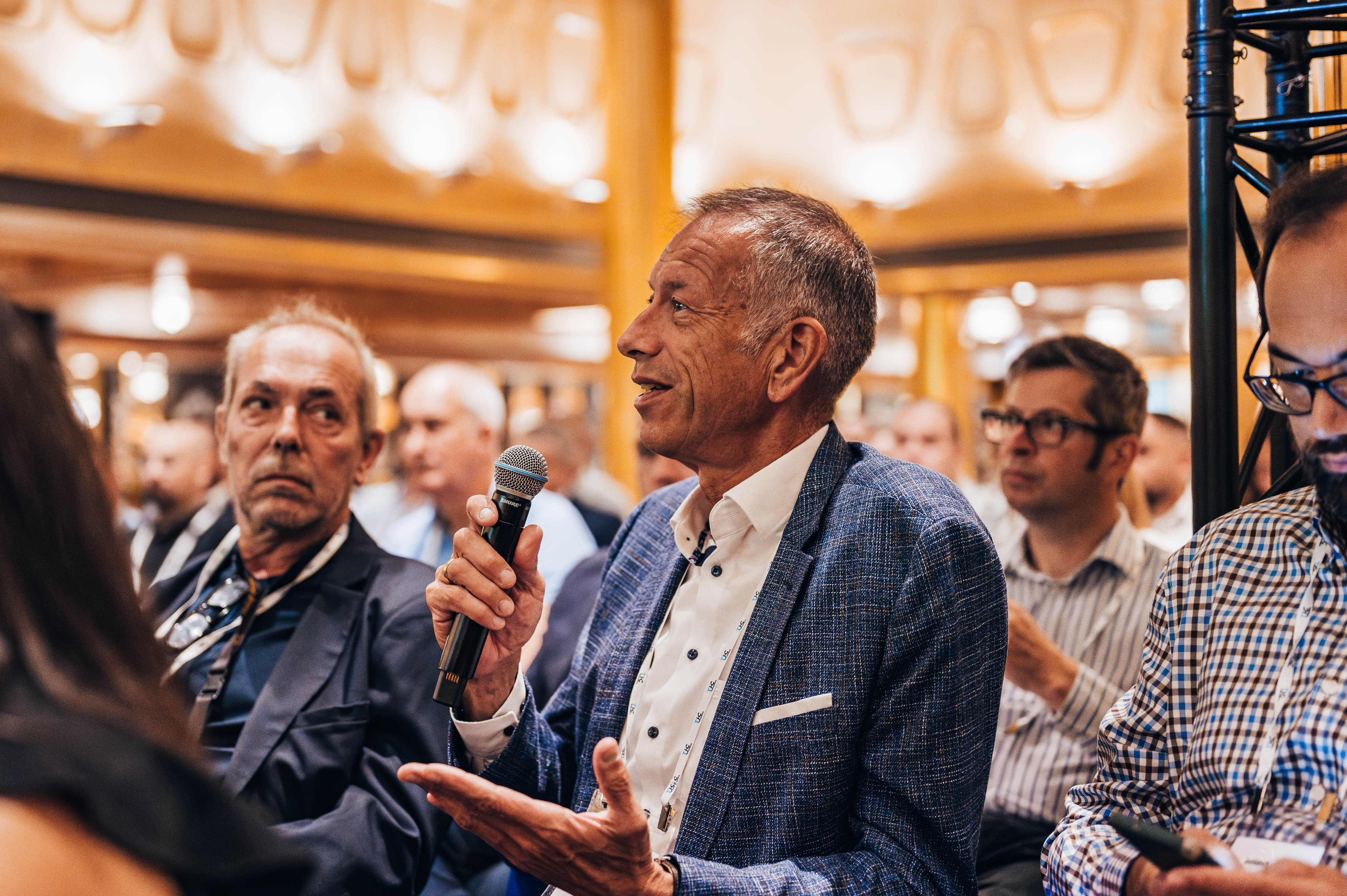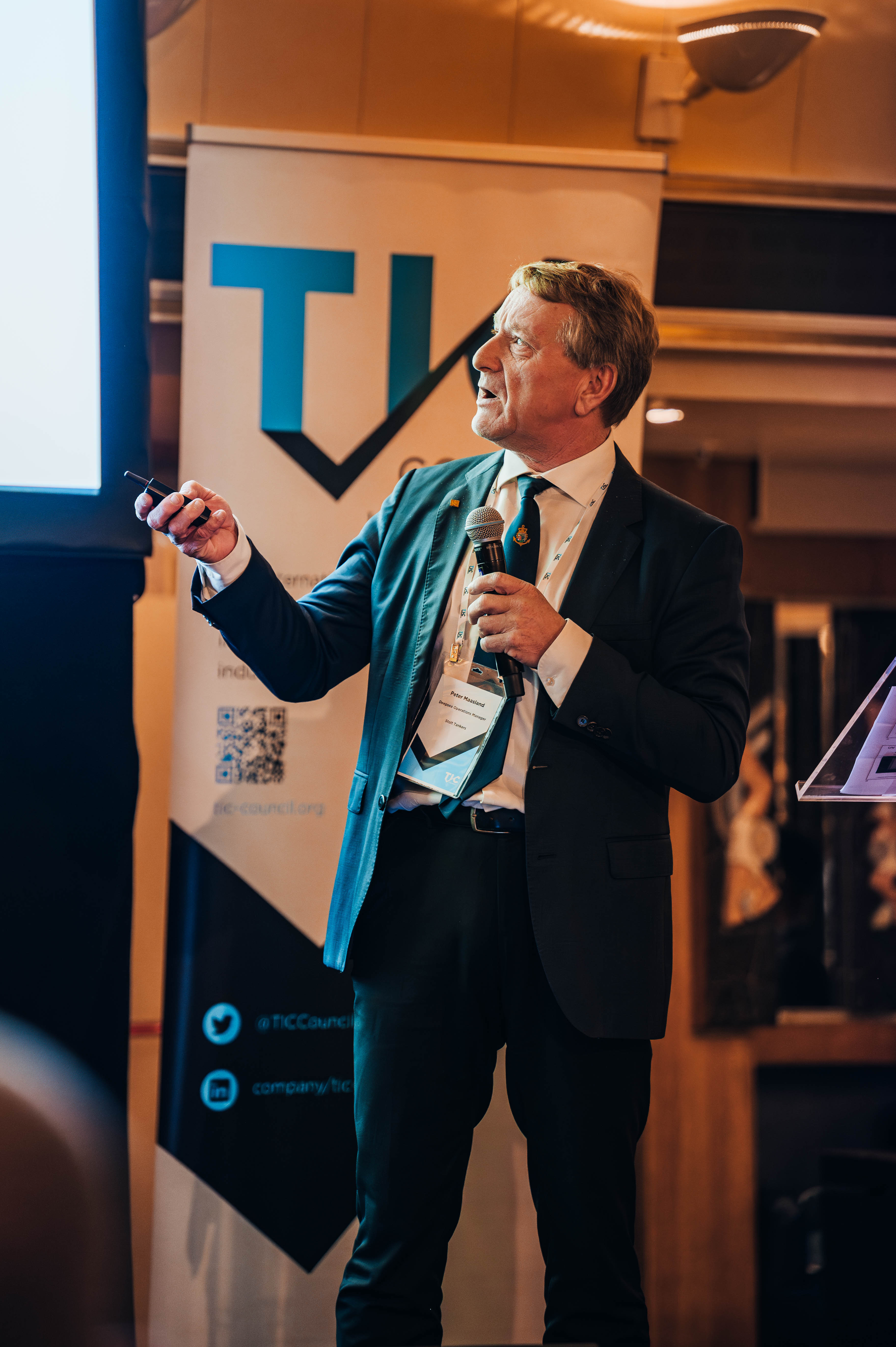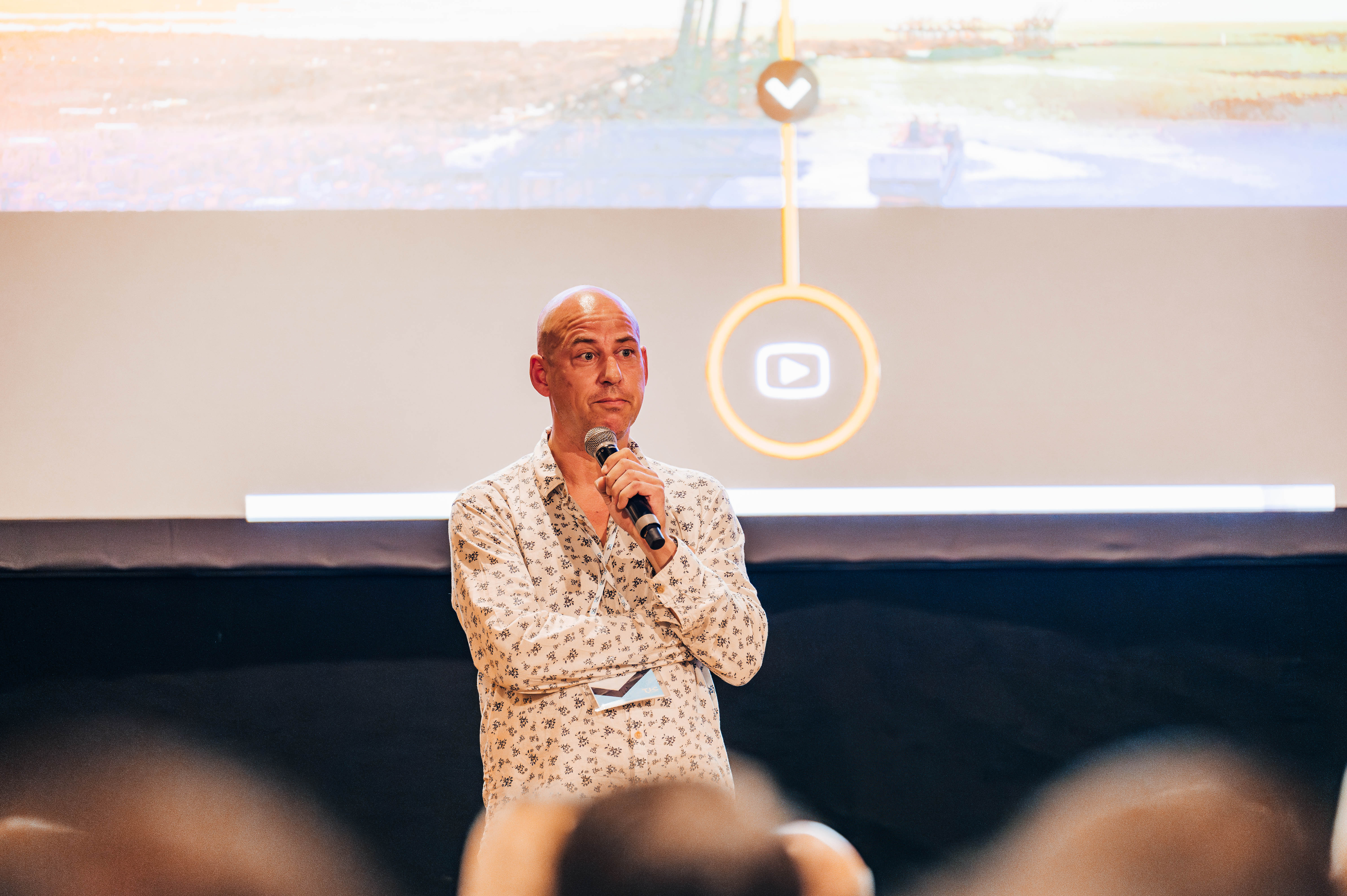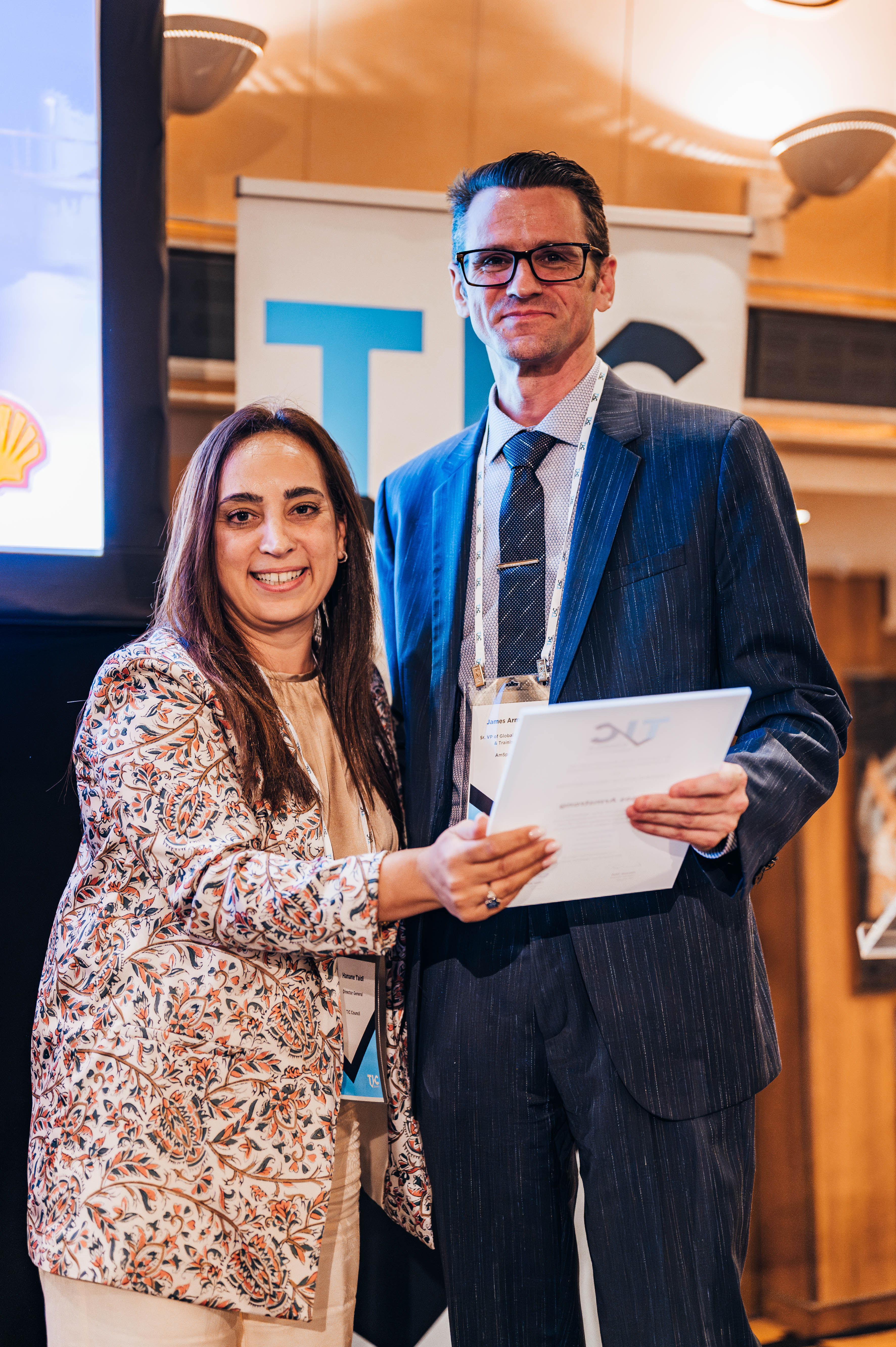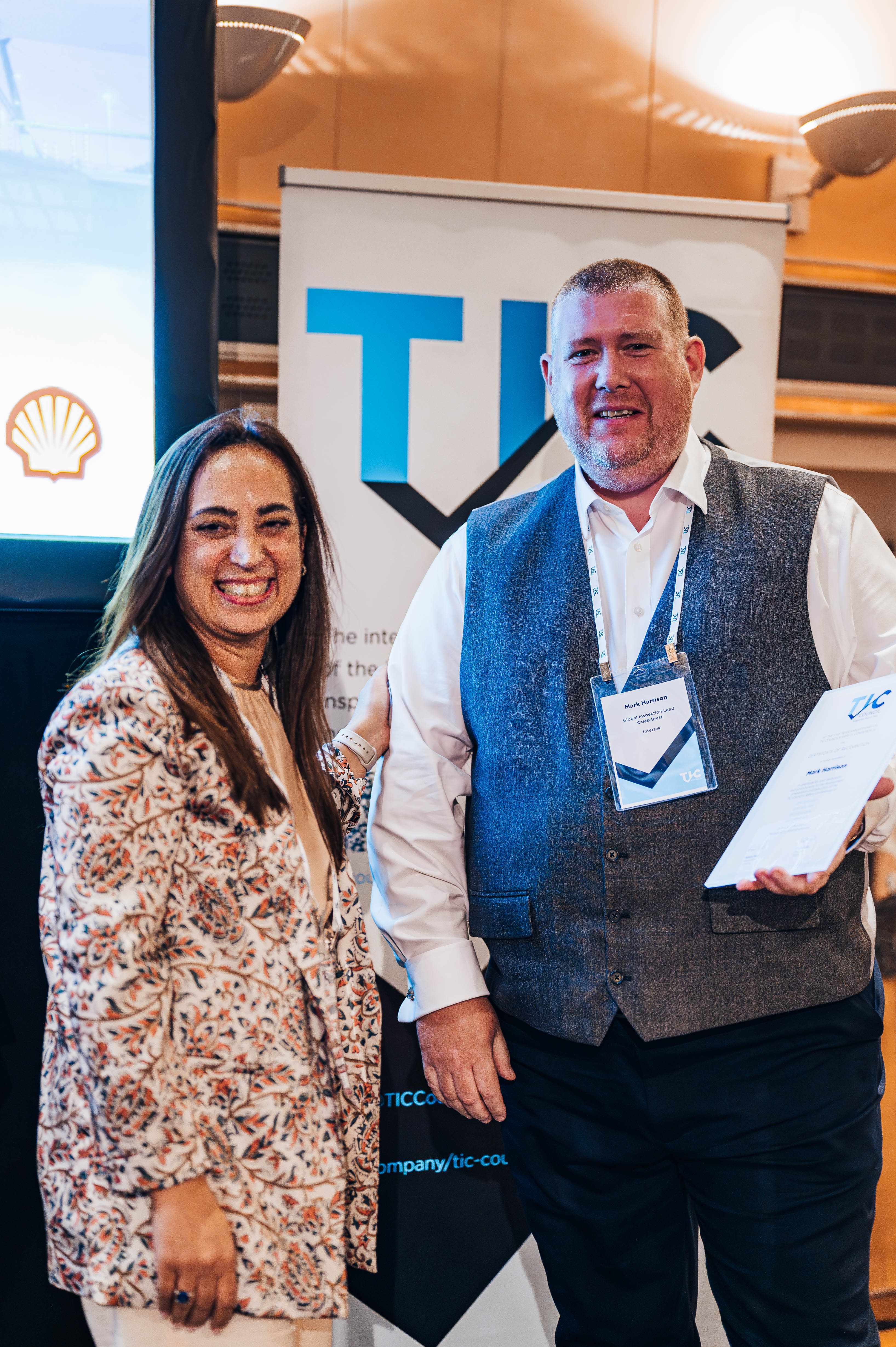On Tuesday, September 19th 2023, TIC Council hosted the International Energy Safety Conference at the SS Rotterdam, in The Netherlands.
The opening address was delivered by Peter Boks, CEO of Saybolt International and Global Board Sponsor to the TIC Council’s Commodities Committee. He spoke about the TIC Council’s role in promoting and improving safety and ethical behaviour in the oil and gas industry, showcasing the International Energy Safety Conference as a joint effort to offer an open forum for all O&G stakeholders, where dynamic and result-oriented discussions can take place to address safety issues. A special recognition was given to the sponsors of the event: BP, Chevron, ExxonMobil, and Shell.
The first session of the day was an introduction to the TIC Council's Safety Code Part 2: Laboratories, delivered by Mark Harrison, Global Inspection Lead at Intertek. Mr. Harrison introduced the document as a collection of industry best practices and guiding principles meant to assist HSE personnel in ensuring that laboratories in the Petroleum and Petrochemicals Industry are safe environments. The document, produced in response to direct feedback from previous Safety Conferences, contains industry knowledge designed to be adaptable to geography-specific regulations and requirements. Its aim is to provide guidance for establishing clear expectations and fostering a culture of identifying and addressing hazards.
The second session, "Fuelling the Future: Safe Handling and Awareness of Alternative Fuels," was delivered by Michelle Shea, Director of Renewables, Low Carbon, and Sustainability at Camin Cargo. This session focused on addressing the safety challenges that are both currently present and also expected to further arise from new and alternative fuels entering the market, such as Hydrogen, Ammonia, and other biofuels and bio-fuel components. The key message conveyed was that safety cannot be ignored in the wake of the energy transition. As the Petroleum and Petrochemicals industry widens its portfolio of low-carbon fuels, it remains as a central responsibility for Stakeholders to ensure the safety of their employees, assets, and the environment.
Following discussions, it was agreed that an action item for the industry is to promote awareness of these safety hazards associated with newer fuels. While it is still early days for the Energy Transition, it is nonetheless crucial for the industry to play an active role in promoting a clear understanding of the risks that come with it, and ensuring that new producers entering the market understand these safety hazards and share the pertinent Safety Data Sheets (SDSs).
The third session, "Spectroscopic Examination of Tanker Washing Waters," was a follow-up to the conversations held in Singapore in 2022 during the previous conference. Following an introduction by David Gauci, Global Lead Product Quality and Testing at Saybolt, Peter Maasland, Deepsea Operations Manager from Stolt Tankers, delivered an in-depth overview of the application of this new technology that ensures efficient cleaning of the tanks in a ship, guaranteeing that there are no traces of the last cargo carried in the tank. Mr. Maasland also touched upon the significant safety benefits of this method, which highly reduce the need of tank entry, and all the risks associated with it. A conversation ensued regarding the reliability of the technology and what can be done to ensure the industry progresses in the direction of adopting these practices. Particular interest will be given in the future as benchmarks and statistics become available, serving as a resource to both assess the consistency of this technology and promote the development of pertinent standards for its use.
The "Back-to-Basics Protocols" session was delivered as a joint panel of the inspection industry. The panel included James Armstrong, Senior Vice President of Global Health, Safety & Training / ESG at AmSpec; Toine van Moorsel, Global HSE-DG Manager at Saybolt; Mark Harrison, Global Inspection Lead at Intertek; and Clive Stallwood, HSE Director at Bureau Veritas.
The primary focus of this part was to review and further discuss the essential safety protocols that form the foundation of safety practices within the petroleum industry. The topics covered included Safe Access, IATA Samples Transport, PPE, Confined or Enclosed Spaces, and Lone Working. The approach to this protocol overview emphasized the collaborative nature of safety, highlighting that it cannot be achieved by a single party alone. Teamwork and reliability among stakeholders in the Petroleum and Petrochemical Industry were emphasized as fundamental to promoting safety.
In the discussions that ensued after the presentations, a significant industry challenge came to the forefront, specifically addressing the rising difficulty for frontline workers in applying the correct protocols due to the unavailability of Safety Data Sheets for newer, less familiar products entering the value chain. The value of the TIC Council as a source of information was pointed to.
The final presentation covered the topic of Human Behavioural Aspects of Safety. This was delivered jointly by Melanie Dill, Global Inspection Contract Holder at Shell; Mark Harrison, Global Inspection Lead at Intertek; Clive Stallwood, HSE Director at Bureau Veritas; Chad Gasper, HSE Manager at Chevron; Caroline Gormley, OE/HSSE Strategist at Chevron; and Julian Wilson, Senior HSSE Strategist at Shell.
The delved into the experiences and perspectives of the Inspection and the Petroleum Industry, highlighting how the promotion of a robust safety culture with a human element at its core has significantly improved safety performance, surpassing what was previously achieved solely through technical advancements and robust management systems. There was a strong emphasis on an approach that does not involve blame but rather focuses on fostering trust, psychological safety, and open feedback.
The central message conveyed revolved around the importance of empathy in safety. A call was raised to recognize that mistakes are inevitable, and that thus the primary focus of all stakeholders should be on creating processes and safeguards that ensure not only that tasks are carried out correctly, but also ensures that when individuals fail, they fail safely.
Mr. Wilson also led an interactive workshop session on decision-making in water-side safety. This workshop is open to anyone interested in conducting it. Link and instructions on how to access it can be found in the enclosed slides.
Towards the end of the presentation, the discussions centered on the challenges of establishing and nurturing a safety culture in geographical regions with varying safety perceptions and practices that may differ from what the speakers were advocating. Examples were given on different levels of acceptance of tools such as Stop Work Authority, and different approaches to Permit To Works. There was a consensus on the importance of promoting safety practices with a unified voice. Events like the Safety Conference and platforms like the TIC Council were highlighted as essential tools for consolidating valuable concepts and advocating them from a unified stance.
The closing remarks to the conference were given by Peter Boks, recapping the main points discussed during the day, and welcoming the extensive feedback and discussions held across all the sessions.
Finally, Hanane Taidi, Director General of TIC Council, took the stage. On the occasion of the 5th anniversary of the Safety Conference and its return to its original venue in Rotterdam, she, on behalf of TIC Council, gave a Certificate of Recognition to four members who have consistently contributed to and participated in all the conferences since 2018.
The certificates were awarded to:
- James Armstrong – AmSpec
- Mark Harrison – Intertek
- Toine van Moorsel – Saybolt
- Clive Stallwood – Bureau Veritas
The slides showed during the conference can be accessed here.
